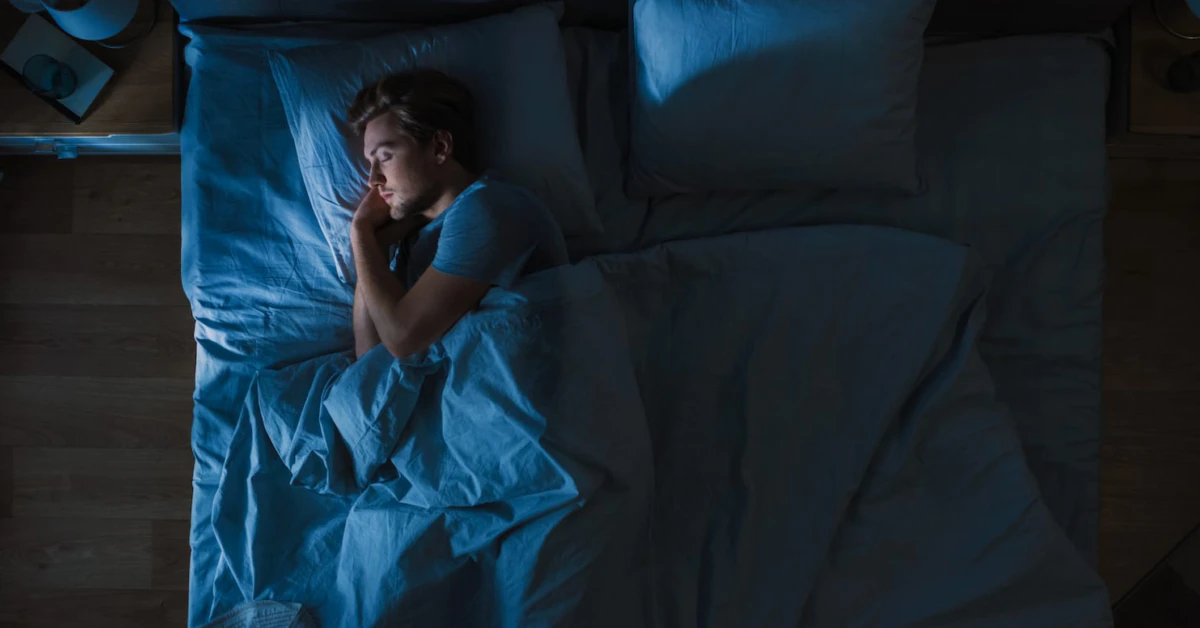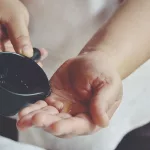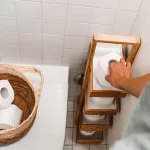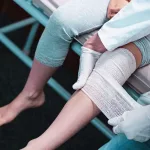You’ve noticed it, haven’t you?
Your loved one sleeps a lot—like, way more than usual. They nap at odd times. Maybe they’re even… asleep for hours. Is this normal? Could something be wrong?
You’re not the only one asking these questions. Many caregivers scratch their heads, worrying they’re doing something wrong. But the truth? It’s more biology than blame. Dementia changes the brain, alters energy levels, and in advanced stages, sheer exhaustion kicks in. Let’s talk through it—no Jargonland, just real answers that show you what really happens.
The Science Behind Excessive Sleep in Dementia
Let’s break this down easy: our brain controls when we sleep. You know, that sleepy gene, melatonin, routines, all that. But what happens when dementia starts rewriting the control panel? Yep, everything goes haywire.
Why does the brain just shut down like that?
Honestly, it’s a lot like being super tired after a mental marathon.
Let me give you a personal example. My friend Leanne’s dad has vascular dementia. In the early stages, he’d just doze off mid-sentence. She thought he was being lazy (not a nice thought—to himself or others). But his brain was just plain worn out. The whole day was exhausting for him.
Same deal with someone in the after stages of dementia—you’re not dealing with a health condition anymore. Dementia itself causes fatigue, which tumors tension across the entire brain. Rumor floats, but the real talk? Every cognitive step is a slog. Says one study, excess sleeping in dementia patients is like infants needing constant rest after absorbing so much newness daily. Except… in dementia, the overload is from the outside not making sense anymore. And the brain exhaustion that comes rebuilds pressure.
Caregiver tip: don’t push them too hard when they’re down for the count. It’s not depression or”laziness”—it’s literally like their brain is in survival mode. They’re not going lazy. They’re just plain… tired. Deep tired.
What about those medications, though? You didn’t rule them out yet.
Oh wait—I was getting there. You caught me skipping ahead, guilty as charged!
Believe it or not, even meds used in dementia care can drench them in sleep.
Caffeine and seniors rarely mix well, either, but try this variable: Many caregivers don’t realize that sleep-inducing drugs (which they’re prescribing for many reasons, not just sleep—think calming them for rest periods) are stacking up on their own.
Be careful with this list:
- Antipsychotics
- Antidepressants
- Common antihistamines (like Benadryl, for non-allergy problems too)
They all pour a heap of sleepy dirt into the mix. If your loved one just started a new med and then dozed off mid-banana-eating and dinner Prep got weirder… you might need to circle back to the doctor and ask, “Is this side effect build stacking sleep or anxiety?”
Performance tip: go in with a list of medicines. Keep things super clear—doctor likes that—it helps them track what’s being taken. Just flipping a med can reset their sleep mood. Sometimes you won’t be ‘brilliant at diagnosis’ within 20 minutes, but playing detective helps.
Are there other sleep-related “guests” causing daytime drowsiness?
Okay, imagine being tossed from a party because you snore, but you don’t even know it.
Some sleep conditions party-crash dementia care. Like sleep apnea. You ever wake up with your partner sawing logs and then feel like a truck rolled over them? Same thing. Their brain gets so starved for oxygen during feast-time-snoozing that they wake up with brain hangover.
Or restless legs—definition like ants in the trousers after 3AM—interfere with good-quality sleep even if they are REFERRING to sleep 12 hours. They might look asleep, but they’re full-on restless under the covers all night.
Conclusion? If we’re wildcard guessing, the story’s got more chapters. You’ve got to ask the team—nurse, sleep clinic specialist, and maybe even a pharmacist.
Dementia Types That Disrupt Sleep More Than Others
What’s going on with Lewy Body dementia and sleep?
Queer question, isn’t it? Because in Lewy body dementia, it’s not about falling asleep easily—it’s about waking in a storm.
Did you ever see someone twitch mid-sleep? My cousin’s mom—you guessed, she has DLB. And according to a 2019 Mayo Clinic study, it’s not just you seeing this. Eighty percent of DLB patients fell asleep within 10 minutes in their naps.
But their nighttime?
See, DLB patients can suffer REM sleep behavior disorder—where they kiss, shout, or flail in their sleep all night.
So they nap. Not because they got lazy, but because how the flip would you deny yourself rest when it’s been trampled for years?
What about Alzheimer’s and vascular dementia?
Different stories.
In mid to late Alzheimer’s stages, the disorientation sets in. Some patients reverse their clocks—we call it the day/night swap most cruelly. light changes don’t hack it anymore for brain’s ability to sync daily life. You end up with your loved one getting up at 3:00 AM to “go to work,” then spending 11:00 AM in dreamland.
Vascular dementia tends to be less dramatic but science says they’ve got less/no blood flow to key sleep centers. That causes longer sleep chunks. They might not fall into extreme sleep, but they feel sleepy more comfortably than most—if that’s the correct word.
Comparison time:
| Dementia Type | Day Sleep | Night Sleep | Unique Trait |
|---|---|---|---|
| Alzheimer’s | Long naps | Fragmented/waking early | Biological clock issues |
| Lewy Body | Heavy | Restless/frequent microsleeps | REM disorder |
| Vascular | Gradual increase | Tiered and faulty | Blood flow to brain |
If that helps, you’re already one step ahead of my friend Jessa—who tracked her mom’s sleep like clockwork because she didn’t get the ‘why’ until late in the game.
When Daytime Sleep Might Be a Red Flag
If they suddenly sleep more than usual—what possibly happened?
A person doesn’t just… start sleeping 14 outta 24 hours overnight without some underlying shift. Yes. So… check behind the curtain you’ve been avoiding.
Could be:
- Infection. UTIs are renegades—they don’t act the way they do for you and me when someone has dementia. Fever? Might not even show. But the sheer exhaustion and disorientation does.
- Medication side effects—especially drugs with the label “May cause drowsiness.” Double-check dosages. Trust me, I got advice from a nurse once because a patient was sleeping way too much. She caught a sleepy side effect buildup in anti-epileptics. Adjustment helped his brain wake up mediums of better sleep.
- Aggravated physical discomfort. Point packs: pain (especially silent ones—like constipation or pressure sores), dehydration, or even low blood sugar can force their brain to shut down during the day.
If they’re swelling down hard for days suddenly, promise me, you’ll get them checked.
Shouldn’t short-term sickness mess with sleep forever, right?
Not necessarily. Anyone can doze 12 hours if they catch the flu. But in dementia? It’s stickier than that. The same brain that’s processing pain signals weirdly now is also interpreting discomfort in sloppy jargon. Let me explain:
If someone starts to feel sick, normally, their body would pick it up fast with fever, headache, or pressure points. Dementia-troubled brains don’t catch the signals easily. They just… sleep through the warning bells.
So if you catch them sleeping like they’re escaping, don’t be casual. Something could be backing up underneath they don’t know how to say. Think of it as a silent cry for help. And act accordingly.
What if their night sleep got worse too? Is that normal?
Ohh. When someone with dementia no longer sleeps at night at all, well… “kind of” gets twisted literally. And you get too little yourself. I hear that part loud and clear.
A bad sleep cycle causes two problems:
- They sleep more in the daytime. Duh.
- Their internal sleep library disintegrates, so they think Day is Night and Night is… random time. Again, not by choice.
But if you try all the sleep hygiene tricks—increase daylight, limit stimulant drinks like cocoa—and nothing works, then yeah. Time to ask: “What’s behind Door #41?”
One senior caregiver group recommended having medications checked routinely when sleep stops making sense. And opening up to alertness means the clock may not have stopped. So, double-check with their medical team just to be safe.
Caregiver Strategies for Managing Excessive Sleep
If structure helps, where do I even start?
Like any good dancer, you need a beat to follow. Structure’s the beat. Without it, they’ll confuse their schedule like DJ drop-in shocking beats wherever they feel like it.
Let’s keep it tight without force-feeding schedules down their throat.
Care routines that sync sleep:
- Morning rituals: Start the day… even if they weren’t asleep. Gently. Make sure they’re verbalized into knowing when the morning is. Light therapy type? Several windows open, even on cloudy days.
- Nap timing: Supper nap under half-hour if you can. Try aligning rest like storms—giving them a moment, then asking them to “rise and recharge.”
- Bathroom breaks before bed: Incontinency disrupts sleep. They wake feeling uncomfortable, sometimes scared. Make it part of the routine—like sleep behind the wheel of comfort.
One clinical nurse in Lexington, KY, shared: Setting a “sunset mode”—dimming lights, keeping rooms quiet—really helped her patients better map day and night. Sometimes just soft changes with calming rituals do all the magic a drug can’t.
What’s a gentle way to engage without forcing wide-eyed status?
Engagement—it’s not about throwing long debates at them every morning.
If so, you gently invite them back to the present. Without stress.
- Offer early-morning activities: Gardening. Folding towels. Even brushing the cat—stuff physically steady and mentally soothing.
- Emphasize storytelling evenings: Show photo albums. Not for long. Just a couple favorite memories. Helps bridge better brain activity without inflaming confusion.
Also facts to remember if they’re coughing or dehydrated—anxietySetsmuggled Their Sleep Routine.’someDays get stuperously long.
Moral of the story? Less agitation, and more light, food, and movement scheduling—will reduce the endless sleeping that clogging their days up.
Does hydration play into sleep patterns?
Yep. Water matters more than coffee candy in your dementia patient’s care routine.
Why? Because the brain dehydration class in seniors isn’t “you drank less,” it’s where imbalance in brain chemicals (due to aging + dementia) prevent them from signaling when they’re actually thirsty.
See dehydration and dementia: they share a symptom list. Appears worse for both sleep and cognitive performance.
In short: offer small bottles of drinks they actually like during the day. Doesn’t matter if it’s seltzer water or herbal tea—just keep the sips regular.
Could Daytime Dozing Be an Early Warning Sign?
Can increased napping signal dementia before symptoms worsen?
Um… sometimes.
A 2017 study picked up on this: members who logged more night/nap sleep transition to longer phase (over 9 hours/day) often showed indicators of brain performance changes.
So if you’re seeing your older parent sleep 10 hours at night and start falling into 3 PM cookie coma without cause, think twice before chalking it up to them being “tired.” Think: is the brain quietly changing behind the scenes?
Does this mean more sleep causes dementia? Or is it the other way around?
Great question. Spoiler: 2016 research on brain aging shows this one cuts both ways.
If someone sleeps too much before dementia, their brain may thin in regions tied to regulation—our sleep-and-memory sites. The dehataminated sites.
But flip side: if dementia progresses into midstage, and sleep wrecks night before night, they drown in hourlong naps.
Dehydration, mobility changes, and evening confusion help fuel the tunnel vision about “just sleeping it off.”
I’m not here to scare you. This isn’t “nap = your future.” It’s more like “his nap—should I watch it way more carefully?” …and run other tests alongside your doctor’s visits.
What’s Your Takeaway After Reading All This?
Okay, brainiac, let’s break it down. Daytime sleeping in dementia isn’t evil by any means—but it can be a rising tide that signals something bigger under the surface.
Maybe it’s the drugs stacking fatigue on top of cognition. Or maybe the disease improved their mental rhythm (or lack of it). But in harder cases—especially unchecked infections or collisions between medications—sleep could be the only symptom your loved one’s able to give.
So your job? Listen with more than your ears. Just ’cause they’re at rest doesn’t mean they’re at peace. If they suddenly start sleeping like their last big test is tomorrow… but no exams are happening… run health checks. Your kids, your doctor, even your solid gut—it all matters more than we think.
Have you seen real positive shifts in your loved one’s sleep since adjusting light, meds, or hydration? Share below. No judge zone. Just you, me, and people who’ve been in your shoes—which honestly? A lot more than you’d expect.


















Leave a Reply
You must be logged in to post a comment.